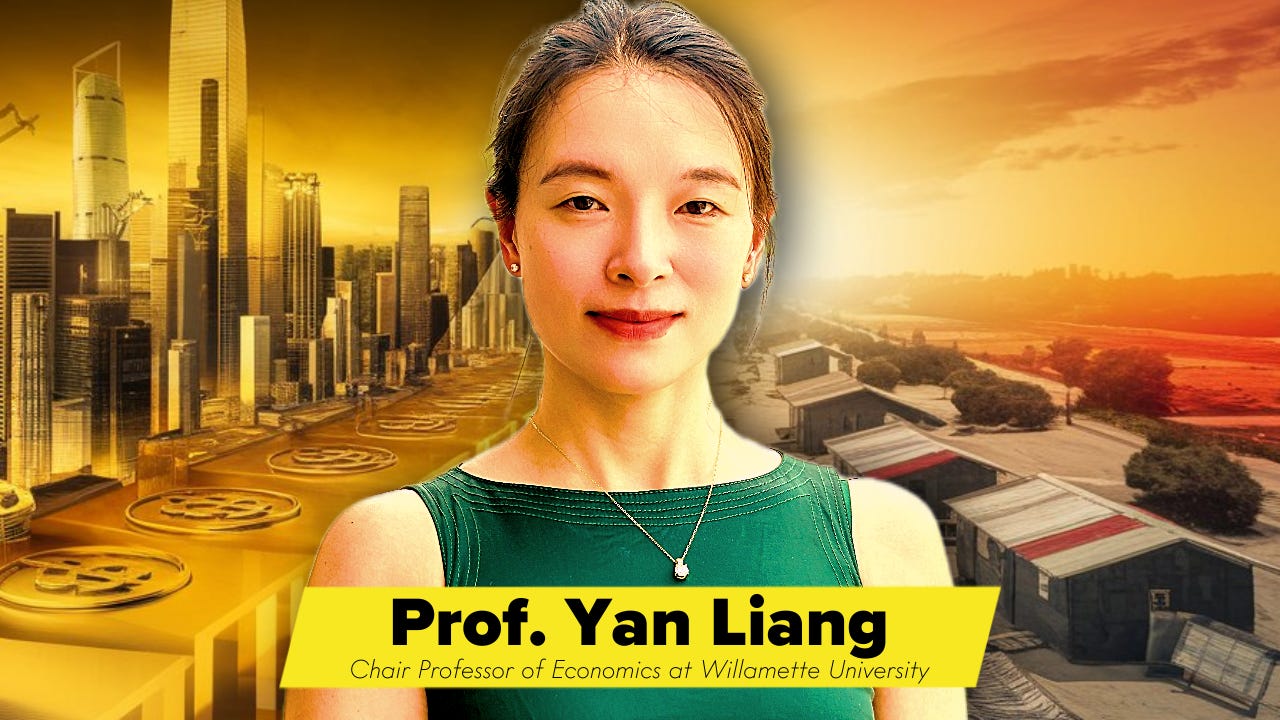The Path to Financial Sovereignty: Modern Monetary Theory and the BRICS Vision
Could BRICS+ use Modern Monetary Theory to create a future where monetary sovereignty and innovative financial frameworks reduce inequality and foster sustainable global development?
The economic landscape is witnessing a profound shift, one where alliances such as BRICS Plus (Brazil, Russia, India, China, South Africa, and Partners) are challenging traditional norms of global finance. A key voice in understanding these dynamics is Professor Yan Liang, a specialist in Modern Monetary Theory (MMT) and global development economics, who recently shared her insights in an interview that interwove theory, practice, and the aspirations of developing nations.
Unpacking Modern Monetary Theory
MMT, as defined by Professor Liang, is not a prescriptive model but a descriptive one. It elucidates the operations of fiscal and monetary systems, emphasizing money's role as a public institution designed to serve collective needs. At its core, MMT challenges the mainstream notion of money scarcity. It argues that governments with monetary sovereignty—the ability to issue their own currency—have untapped power to fund public goods, provided they manage real constraints like labor and resources rather than arbitrary financial ones.
The theoretical underpinnings of MMT resonate deeply in today's world, especially when juxtaposed with startling economic data. In 2021, the U.S. recorded its lowest poverty rate in decades at 8%, spurred by pandemic-era relief programs. However, with the withdrawal of these measures in 2022, poverty soared to 12.4%, despite GDP growth. Professor Liang attributes this paradox to the inherent flaws in capitalist systems and the misaligned priorities of government policies.
Inequality and the Monetary System
The global financial architecture, Professor Liang argued, exacerbates inequality. Institutional investors prioritize shareholder profits over societal needs, leading to practices such as stock buybacks and workforce reductions. This "money manager capitalism," she explained, depletes middle-class wealth, hollows out industries, and entrenches poverty.
MMT offers a lens to rectify this imbalance by urging governments to reclaim control over monetary policy and direct spending toward equitable development. By shifting focus from abstract financial targets to real-world outcomes, MMT can provide pathways to reduce inequality and foster economic stability.
The Role of BRICS Plus in Reimagining Global Finance
The BRICS Plus bloc exemplifies the potential of MMT-aligned thinking. Unlike Western nations that often adhere to neoliberal policies, BRICS Plus nations explore innovative financial strategies to counterbalance global inequities. Central to this effort is the creation of alternative financial architectures, which prioritize local currencies and regional cooperation over-reliance on the U.S. dollar.
Professor Liang highlighted the multifaceted approach BRICS Plus is taking to redefine international finance:
Credit Systems: Institutions like the New Development Bank provide financing in local currencies, reducing dependency on external debt.
Insurance Mechanisms: Collaborative frameworks mitigate risks associated with trade and investment.
Payment and Clearing Systems: Digital platforms and shared clearing units facilitate trade between member nations without defaulting to dominant currencies.
Contingency Reserves: Mechanisms like the Contingent Reserve Arrangement (CRA) buffer countries against balance-of-payment crises.
This vision represents more than an economic shift; it embodies a political aspiration for sovereignty and justice. BRICS Plus nations aim to escape the "original sin" of being tethered to foreign currencies for essential imports like food and oil. By leveraging their collective strength, these nations aspire to climb the global value chain and redefine their roles in the international order.
China's Leadership in the BRICS Vision
China emerges as a key player in this narrative. With its focus on diversifying global currency usage and pioneering centralized digital currencies, China offers a blueprint for financial innovation. Its active participation in initiatives like the M-Bridge program underscores its commitment to creating a decentralized yet unified clearing system for international trade.
Moreover, China's investments in Africa and other BRICS nations reflect a philosophy of mutual growth. By funding infrastructure and industrial projects, China exemplifies how surplus countries can support deficit nations in building sustainable economies—a principle deeply aligned with MMT’s ethos.
Challenges and Opportunities Ahead
While the BRICS Plus framework is ambitious, it is not without hurdles. Structural constraints, such as unequal access to international markets and entrenched reliance on low-value exports, continue to impede developing nations. Furthermore, balancing the diverse economic priorities of member countries requires nuanced diplomacy.
However, the potential rewards are immense. By fostering financial independence and equitable trade, BRICS Plus can set a precedent for global cooperation that prioritizes development over-exploitation. In this context, MMT provides a guiding framework, encouraging nations to wield monetary sovereignty as a tool for collective progress.
Conclusion: A New Economic Order
Professor Liang's insights underscore a pivotal moment in economic history—a chance to challenge entrenched inequalities and reimagine the role of money in society. The BRICS Plus alliance, with its innovative financial architecture and commitment to shared prosperity, stands at the forefront of this transformation.
As global challenges such as climate change and economic inequality intensify, the principles of MMT and the collaborative spirit of BRICS Plus offer a roadmap to a fairer, more resilient world. The question is not whether these ideas will shape the future but how quickly they can be adopted to meet the urgent needs of our time.




Quite a few decades back, GDP was divorced from measuring anything real, so gambling in whatever fancy derivative instrument they could cook up was included, so nearly 95% (or more) of GDP is nothing but gambling debts being traded back and forth. As Alexander Hamilton put forth in his 3 reports to congress on becomming an independent industrial nation, it first must have sovereign control over its currency, and second create an investment system (national banking) that puts the future prosperity of the society as a whole to be its priority though encouraging manufacturing, investment in infrastructure, patent protection and fostering scientific knowledge amongst the population. Any country that has adopted this system has propered such as Bismarks Germany, Meiji Japan, post war Korea, and now China.
Thought provoking piece